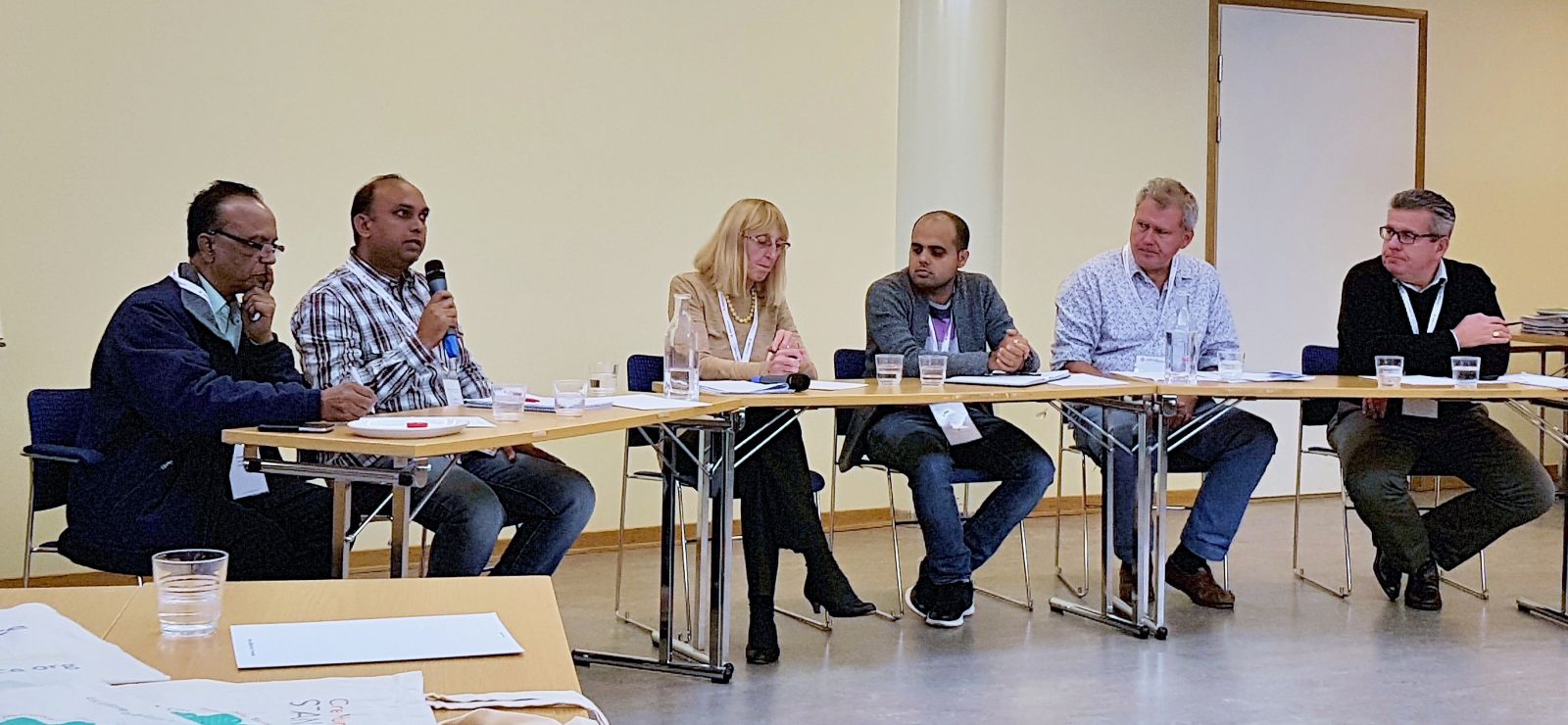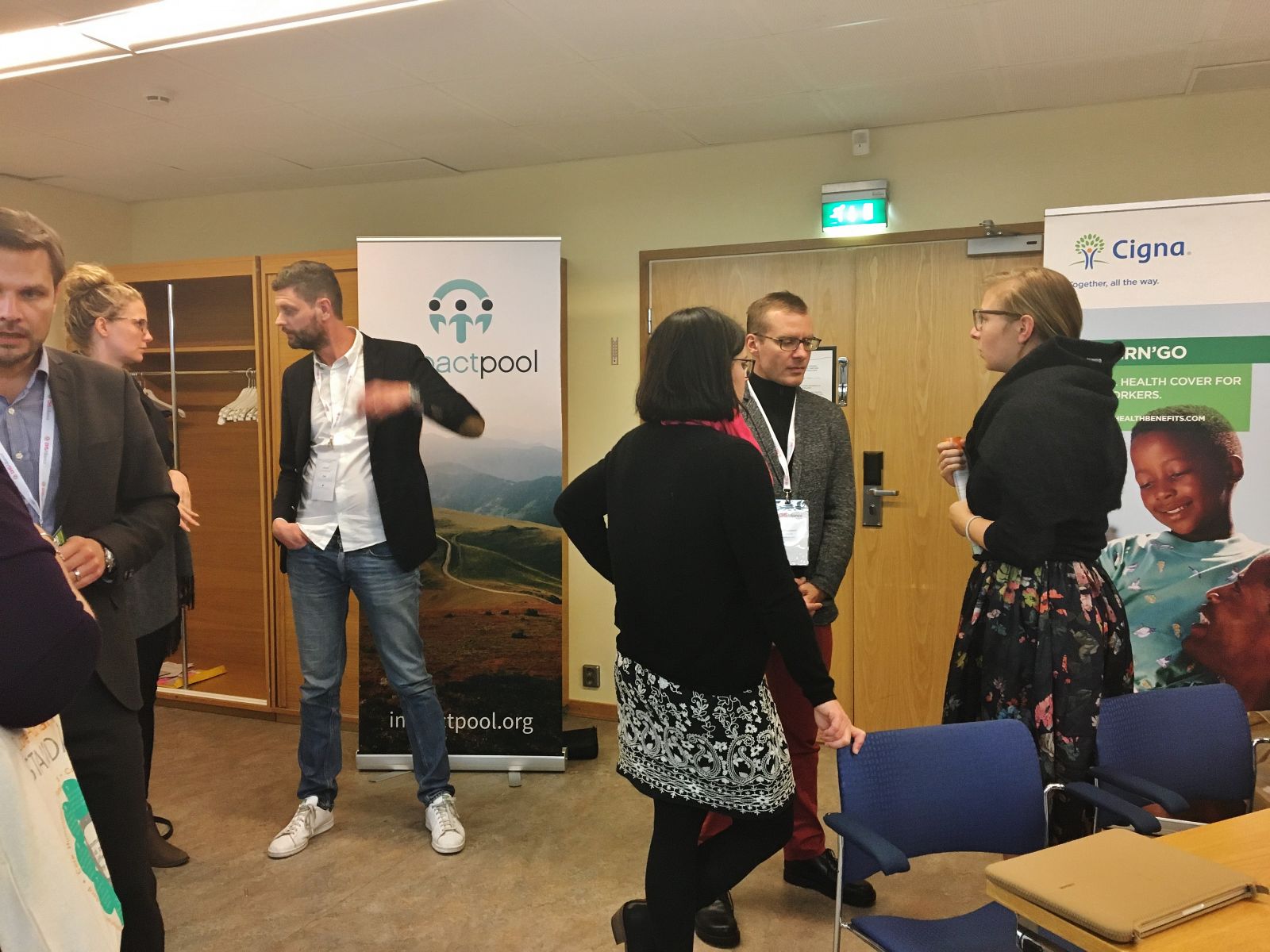Can HR Professionals Help Boost the localisation of Aid Response?
On 21 and 22 September HHR Europe was held in Helsinki, where 72 participants came together from different organisations to discuss the challenges related to the localisation agenda. The theme of this year’s HHR Europe Conference was ‘As local as possible; as international as necessary. The role of HR in enabling the localisation of aid response’.
There is no doubt that partnerships with national and local organisations enhance the relevance, appropriateness, accountability and connectedness of humanitarian response. We all know from research and evidence that local actors are the first responders after a disaster strikes and they will be the ones to stay around long after the relief and rehabilitation phase is over. Initiatives such as the Grand Bargain has sought to make principled humanitarian action as local as possible and as international as necessary; the Charter for Change has committed signatories to deliver a more localised practice so that ‘southern’-based actors can play an increased and more prominent role.

From 20 to 22 September HHR Europe was held in Helsinki, where 72 participants came together from different organisations to discuss the challenges related to the localisation agenda. The theme of this year’s HHR Europe Conference was ‘As local as possible; as international as necessary’.
The conference started with Anne Street, Head of Humanitarian Policy at CAFOD, setting out what the Grand Bargain and Charter 4 Change means for the sector, and the associated challenges for HR. This included a call to stop undermining local capacity by recruiting national NGO staff, particularly during the rehabilitation phase of a response. As a matter of fact, research shows that national NGOs lose most staff and when INGOs and UN agencies were the most aggressive in recruitment. Concern was also expressed about unethical recruitment practices of international organisations, for example head-hunting or pressurising staff to leave their organisations without giving adequate notice periods or taking up references.

Our panel discussion was chaired by Anne and included Talha Jamal, Country Director for Islamic Relief in Nepal; Udeep Regmi, from BATAS, a partner of Islamic Relief; Michael Mosselmans from Christian Aid; Francis Atul Sarker from Caritas Bangladesh and Rene Bujard, Global HR Director, Oxfam International. They all set out their thoughts on the challenges around localisation.
Questions raised from participants included:
- As local as possible, as international as necessary: well, in which cases should we call it necessary?
- It seems like we are talking to the converted about localisation. How can we help create paradigm shift amongst major donors and INGO finance decision-makers ?
- If INGOs are leading the localisation agenda, how do we hold them accountable for promoting solutions that perpetuate their privilege in this dynamic?
- What is the speakers’ perspectives on the possibility of hiring staff from the very communities affected by crisis (refugees, devastated villages, etc.)?
- To what degree should the localisation agenda include local organisations that are not NGOs/CSOs, such as state actors?
Day 1 set out the challenge and day 2 introduced us to some interesting case studies and projects focused on localisation. In particular we heard about how initiatives can work in practice.
Michael and Francis told participants about the Shifting the Power project, which aims to ensure a more acceptable balance between international and local responses to disasters; strengthen national capacity for decision-making and leadership; help national organisations to achieve better representation, voice and recognition, and influence international organisations to support and promote the work of local and national organisations.
Talha and Udeep then took us through a fascinating presentation of how they developed their working partnership and in particular Udeep shared the model of the evolution of partnership towards localisation: initial phase: sub contract; mid-phase: handholding; maturity phase: independent.
We then had illustrations of current work from the Start Network’s Transforming Surge Capacity Project on setting up national rosters in the Philippines; resourcing and rosters from Impactpool and Human Surge. Cornerstone Foundation and Bioforce – talked through capacity building projects they have worked on with partners in DRC and Syria. Our skills building session focused on equipping HR professionals to advocate for change with donors, their CEOs, partner organisations and other HR professionals.
Day 3 was all about implementation – how can we put everything that we have heard into practice? After some lively discussions, concrete actions of how HR can influence strategy or action within their organisation and what more can HR do to support localisation were outlined.

HHR Europe was another fantastic opportunity to bring together not only the top HR professionals working across the sector, but also representatives from programmes, including both national and international organisations and representatives from security. Together we were able to share ideas, identify issues and needs, and think of solutions so that we are all working towards localisation.
Many thanks go to our sponsors Cigna, Impactpool and Islamic Relief; our hosts Finn Church Aid and to all of our participants for an inspiring and dynamic HHR Conference.


